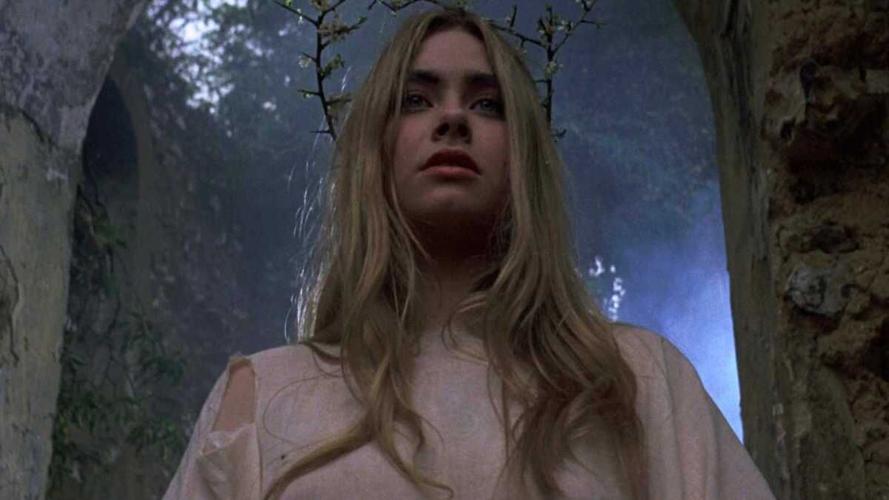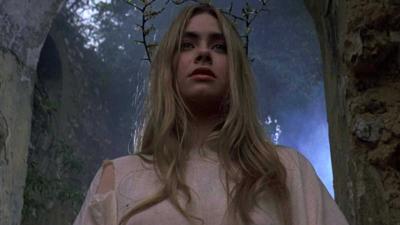The 52nd annual Nashville Film Festival took place Sept. 30 through Oct. 6, and as we noted in the Sept. 30 issue of the Scene, the fest featured a whole slew of worthy entries. Below, see some of critic Joe Nolan's thoughts on this year's lineup (with an entry from contributor Cory Woodroof as well).
A-ha: The Movie
Directors Thomas Robsahm and Aslaug Holm accomplish something remarkable in their new music documentary about the Norwegian band A-ha: They tell a completely unexpected story about a band that most American audiences will hardly recognize. Many U.S. music fans who weren’t old enough to live through the influx of European New Wave and synth-pop bands that helped to define the 1980s can still immediately recognize the unforgettable keyboard riff in A-ha’s smash single “Take on Me.” The song made the band the biggest-ever group to break out of Norway, and its pencil-sketch music video is now considered a pioneering masterpiece of the form. For most American fans, A-ha is a one-hit wonder, but this illuminating new movie shows that the trio is still a global sensation with a deep catalog and a long legacy that’s influenced acts from Coldplay to The Weeknd.
Woodlands Dark and Days Bewitched: A History of Folk Horror
Kier-La Janisse’s new documentary about culty, creepy, folked-up horror films was the movie I was most excited to see at the fest, and it did not disappoint. Janisse indoctrinates newbies with a section called “The Unholy Trilogy,” exploring the three core films that loosely define the folk horror genre: Michael Reeves’ Witchfinder General (1968), Piers Haggard’s Blood on Satan’s Claw (1971) and Robin Hardy’s The Wicker Man (1973). But then this diabolical doc drifts far afield into an exploration of genre that positively recalls Mark Cousins’ long, deep films about film. Janisse’s movie becomes a global affair, examining the folk-horror film genre through the lenses of Caribbean voodoo, American frontierism, Japanese ghost fables, Slavic superstition and more. This filmic ritual is an orgy of bare skin, antlers, deep woods, abandoned villages and shape-shifting shadows accompanied by revelatory comments from scholars and filmmakers like David Eggers and Emma Tammi who are leading our current folk-horror revival.
I haven’t seen a lot of writing about it, but my favorite film trend over the past few years has been documentaries that find ways to blur the boundaries between real-life movies and narrative films. Ori Segev and Noah Dixon’s Poser does the opposite — it’s a narrative movie that deploys a fictional thriller amid the real-life milieu of Columbus, Ohio’s indie music scene. I’m happy to report that the music is a highlight here, and Bobbi Kitten — frontwoman of Damn the Witch Siren — takes a great turn in front of the camera as herself. More importantly, Sylvie Mix makes a remarkable feature debut as Dylan — a shy 20-something who wants to fit into the art and music scenes. Dylan isn’t sure how to get noticed, but she’s got her own talents, including a knack for deceit and a gift for obsession. Mix is a natural beauty, but she manages a sincerely introverted awkwardness that makes viewers believe she could actually feel like an outsider. Mix’s acting and Dixon’s smart scripting give Dylan a character arc that is both transformative and disturbing. This was my favorite feature of the fest, and I wasn’t surprised when it won the award for Best Narrative Feature.
Clean Slate is a humorous and harrowing documenting of a movie within a movie. It follows two friends through a Southern drug and alcohol recovery program as they attempt to make an independent short film as a replacement for their addictions. Clean Slate tells a story about users trying to get clean, but admirably, it’s also about the broken families, poverty and mental health issues that can fuel struggles with substances.
Window Boy Would Also Like a Submarine is my favorite film title of the fest, and this movie turned out to be as unique as its name. The debut feature by Uruguay’s Alex Piperno is a fantastical story about people connected through space and time by various magical portals. A shiftless cruise-ship worker discovers a doorway on a boat that leads to the urban apartment of an attractive single woman. Another portal appears deep in the forest of the Philippine province of Ifugao, where local farmers offer it sacrifices and gifts. Piperno keeps his portals from becoming a dumb gimmick by embedding them in scenes that are nearly free of dialogue and made up of long poetic shots focused on the drudgery of rural survival and the dehumanizing repetition of modern urban life.

"Love Is Just a Death Away"
Film festivals are among the only opportunities I get to see lots of short films, and I always look forward to finding the biggest little films when the Nashville Film Festival comes around. The Animated Shorts Program included "Love Is Just a Death Away" — a very weird junkyard romance rendered in a gorgeous digital palette that made the sometimes-super-gross images on screen more sweet and less slimy. The Nashville Film Fest is always a friendly place for music films, especially when they’re as dynamic, unique and visually tantalizing as "Nuevo Rico" — Kristian Mercado Figueroa gives viewers an anti-colonialism allegory in this electric story about a talented and determined brother-sister act that explodes into Reggaetón stardom.
"Letter From Your Far-Off Country" is pure cinema, and it stood out in the very good The Edge Shorts program. Director Suneil Sanzgiri captures the contradictions and conflicts of life in the mountains of Kashmir in a poetic collage of sounds and images. Also among the Edge selections, "Leva" is a bittersweet portrait of a humanoid robot that made a nice pairing with "Immaculate Virtual"’s surprisingly engrossing excavation of art’s place in the digital realm.
The Graveyard Shorts are almost always a treat, and this year’s selection didn’t disappoint. "The Atomic Spawn" is a science-fiction comedy set at a secret American nuclear bomb testing facility in the 1950s. Come for the government corruption and jump music, stay for the super-fun monster effects by creature designer Patrick Charles, plus DP Brent Rowland’s gorgeous lensing. "Harvest Bowl" is a musical comedy exploring the intersection of forbidden desire and sweet potatoes, and "I’m Not a Robot" is a super-short film that plays like a mash-up of Office Space and Blade Runner.
The Japanese Shorts selections were also strong: "The Scarlet Medusa" pairs an eccentric scientist and an immortal jellyfish in an exploration of death and memory; "The Chicken" is a poetic domestic drama about old friends and new lives; the stop-motion "Ryori" is a charming meditation on Buddhism and Japanese vegetarian cuisine; and "Tanagokoro: A Culinary Portrait" spotlights the eponymous Japanese chef and his revolutionizing of the European fishing industry. Brian Yulo Ng’s hunger-pang-inducing short documentary was my favorite film of the festival.

C'mon C'mon
C'mon C'mon
Mike Mills movies and the changing of the seasons go hand in hand. The latest from the 20th Century Women director, C'mon C'mon is spectacular and intimate, a bracing hug from a loving relative you've not seen in a while. Joaquin Phoenix is the best he's been in a while (sorry, Joker fans) as a radio journalist who steps in to take care of his sister's quirky kid (Woody Norman, a revelation) during a family crisis. Mills' film goes down like a hearty bowl of soup on a cold, dreary day as he carefully dissects the nuances of parenthood and the magic that strikes when family bonds are reaffirmed. You're not likely to get a spirit-boost quite like this anytime soon. CORY WOODROOF







